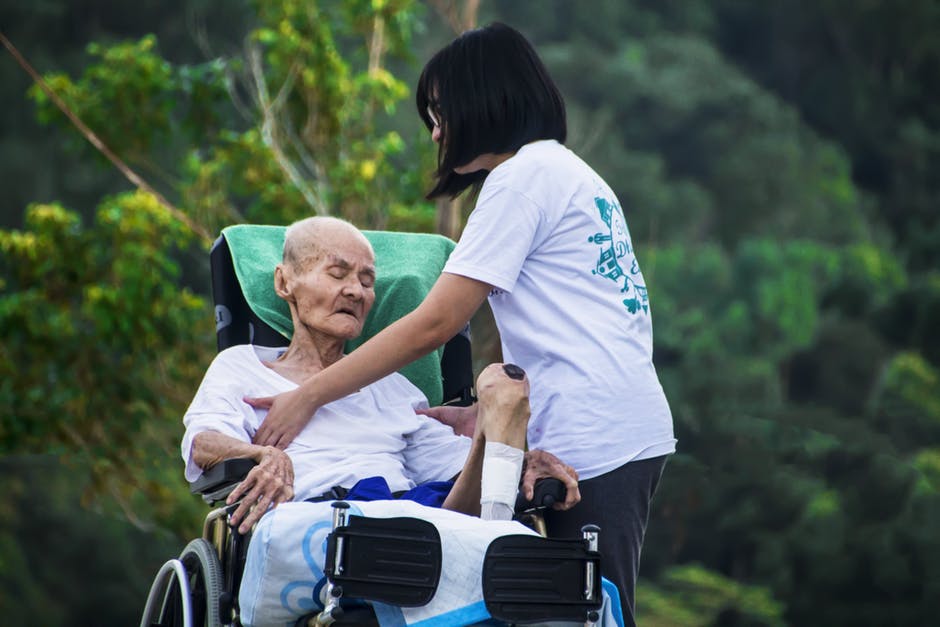By Danielle Santiago | Published by Feb. 24, 2019
Of all the things I had imagined for myself at age 23, moving back home was not one of them.
I graduated in 2013 from Kingsborough Community College in New York with an associate degree in broadcast technology and was looking forward to furthering my education as a transfer student at Brooklyn College.
All of that changed after I received a phone call from my mother in a broken voice explaining that my grandmother had suffered a stroke.This was my then 78-year-old grandmother’s third massive stroke, leaving her completely immobile and dependent on the care of my 77-year-old grandfather (who was already showing signs of dementia) and my 49-year-old mother.
It was an impulsive decision to leave New York in Fall of 2013 but being my mother’s only child, and the eldest granddaughter (who was practically raised by my grandparents), there was a sense of obligation to go back to my childhood home in Perth Amboy, New Jersey. During the duration of that year, I was assisting my mother, Jeanette Rodriguez, and grandfather, Geronimo Rodriguez with developing a care routine for my grandmother, Elsa Rodriguez. This meant scheduling everything from meals, medications, diaper changes, baths, and finding a doctor to make in-home visits.
According to The National Alliance For Care-giving, “the typical millennial caregiver is a 27-year-old adult, equally likely to be male or female.” I began my duties as a caregiver at a much younger age. It has been three years now that I moved back home. I am also a 26-year old part-time student at Kean University majoring in communications. And juggling the two hasn’t been easy.
Over the course of the three years that I have been in New Jersey, I’ve had to learn how to manage my time as a caregiver, a student, and an employee of Chanel. Many times my social life has taken a backseat to my responsibilities. I’ve lost a lot of friends who grew impatient with my inability to hangout but, it is extremely difficult to balance full-time work, part-time education, and care-giving. I have realized there are others who share my struggles, so I’ve put together a list that might help those along.
Here are some tips that helped me cope with being a full-time caregiver in college:
1.) Find a mentor or trusted advisor.
Having someone (or multiple people) to talk to is essential because care-giving is an emotional journey. The goal is to find a trusted advisor (preferably someone older with more life experience) who can be beneficial to have as part of your support system. In my case, I have my Godmother Maria Molina who is a 53-year-old woman with strong family values. She has already experienced care-giving for multiple members of her family and endured the pain of losing those loved ones. Her empathy, compassion, and understanding of long-term care has made her my ‘go-to’ for advice and vent sessions.
2.) Do your research.
You can always start with your state’s website, where you should be able to find more about the National Family Caregiver Support Program in your area. This can be most helpful to you when having questions regarding healthcare, transportation and workshops.
3.) Find a support group.
Isolation is often a result of peer groups and friends who cannot identify with your situation. However,you can easily check with local organizations for the elderly and ask if they know of other young caregivers who may want to form a support group.
4.) Consider hiring in-home care.
Coming from a very traditional Latinx upbringing, placing our elders in an assisted living facility was not an option, in part because they may be too proud to admit that they need care.To ease the workload, you may want to consider hiring a nurse or companion for your grandparent(s). Care.com is often a great place to start. you can post your specific needs while looking for help in your local area.
5.) Find time for you.
Care-giving is a 24/7 job and it’s usually nothing short of an emotional roller coaster. It is imperative to remember to take a time out for yourself to do what you love and for the sake of your mental health. Treating yourself to life’s simple pleasures are necessary to cope with your hardships as a caregiver. Your grandparent(s) may not be in the physical or mental condition to tell you but, you should not feel guilty or let guilt keep you from living your life.
6.) Remember why you’re a caregiver in the first place.
I’ve learned to live for every smile and laugh I can muster out of my grandparents because I know they won’t be in my life forever. There will be a day when all you have left are the lessons and memories that they leave behind, so make the most of them.
